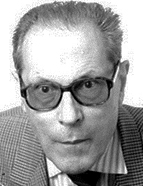

He highlighted the importance of the sugar economy, which enabled Portugal to minimise the negative impacts of the so-called "crisis of the 17th century". This work marked a turning point in historiography, and—despite its outdated content—the original study was reissued two decades later under a new title: Le Portugal, le Brésil et l’Atlantique au XVIIe siècle (1570-1670) Etude économique [Portugal and the Atlantic in the 17th century (1570-1670) Economic Study] (Paris, 1983). The new edition emphasised Brazil’s central role, not only in the work as a whole but also within the broader Portuguese world. After obtaining his Docteur ès lettres , Mauro was appointed professor of modern history at the Faculty of Arts and Humanities of the University of Toulouse in 1958, where he also held the chair of economic history. From then on, he pursued an intense career in research, teaching, and scientific mentorship, expanding his original chronological framework to cover the 19th and 20th centuries and the historical dynamics associated with industrialisation and modernisation in Brazil and the Americas. Focusing on the progress and institutional framework of historical science, in 1963 Mauro published a "state of the art" analysis of university teaching and historical research in Portugal in the Revue historique , drawing on insights from Virgínia Rau (Mauro, "L'histoire au Portugal" [History in Portugal], 1963, p. 433). In this article, Mauro presents the organisation of teaching and research in universities, with a division between institutes and centres, and highlights the existence of the Instituto Superior de Estudos Ultramarinos [Higher Institute of Overseas Studies] (today the ISCSP at the University of Lisbon), where Vitorino Magalhães Godinho ran an important training "programme" at the time. The most active centre, however, was the Centro de Estudos Históricos Ultramarinos [Centre for Overseas Historical Studies], associated with the Arquivo Histórico Ultramarino [Overseas Historical Archive], which featured an "impressive" film library. Mauro provided an overview of the archives, libraries, and museums, many of which were in need of reorganisation. He also evaluated Portuguese publications, characterising them as traditional historiography, disconnected from foreign scholarship and social sciences. However, he identified a possibility of renewal thanks to the few Portuguese historians who had gone beyond the Pyrenees and their disciples (Vitorino Magalhães Godinho, Joaquim Barradas de Carvalho, Julião Soares de Azevedo, Luís de Matos, Joaquim Veríssimo Serrão, Jorges Borges de Macedo, Joel Serrão). That same year, Mauro co-founded the journal Caravelle, which was published by the Institut d'Etudes hispaniques, hispano-américaines et luso-brésiliennes of the University of Toulouse and dedicated to Ibero-American territories (Vayssiére, " Caravelle " entre Lettres et Sciences Humaines”, 2013, p. 3). In 1964, he organised a colloquium on capital cities in Latin America. During the 1960s, Mauro's reputation as a specialist in economic history and the history of European expansion, especially in the modern period, earned him an invitation to collaborate on the prestigious collection of university textbooks " Nouvelle Clio.
This work is financed by national funds through FCT - Foundation for Science and Technology, I.P, in the scope of the projects UIDB/04311/2020 and UIDP/04311/2020.
